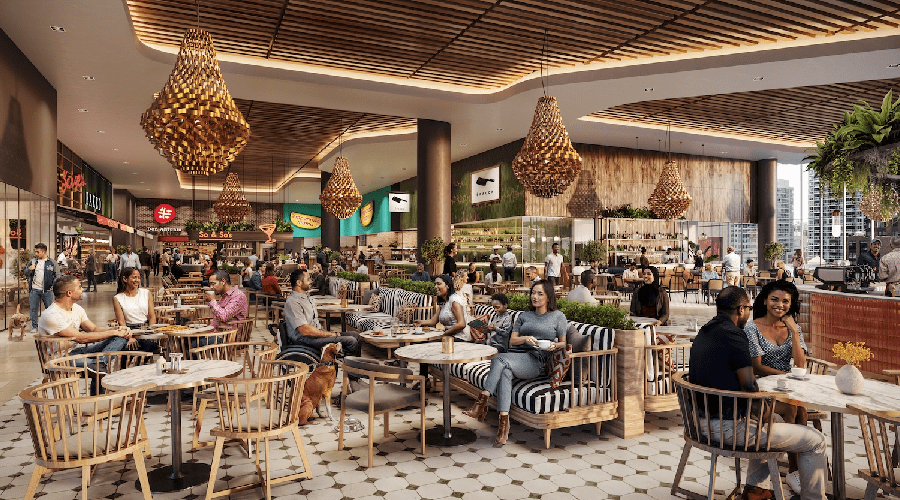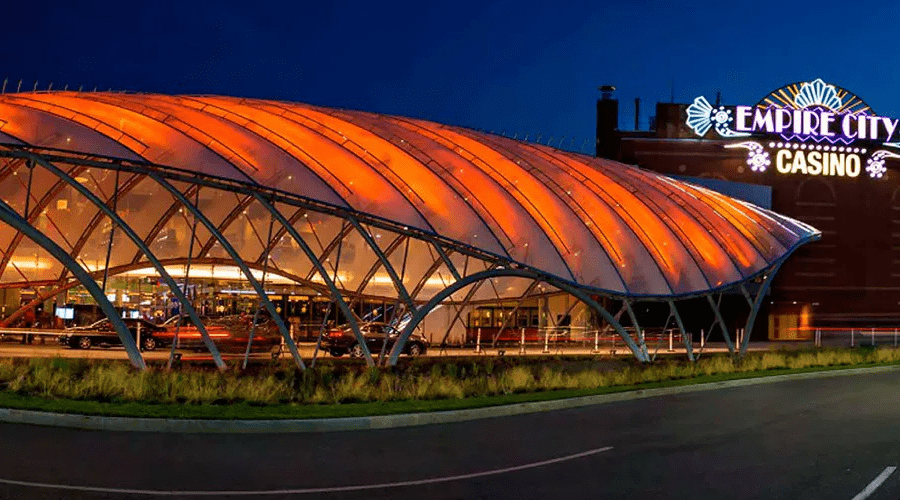The committee is now in charge of the Avenir casino project in New York after a second hearing.
More than 300 people have spoken to the committee that will vote on the Avenir casino plan, outlining how it will affect a part of Manhattan.
On Monday night, Silverstein Properties' Avenir plan was the first of the eight bids to hold its second public hearing. This was the most recent phase in the race for a downstate New York casino license.
About 200 people spoke in front of the project's community advisory committee (CAC) during the almost five-hour session at the Javits Centre. The CAC, which has six members, has now held two hearings, which is what it was supposed to do. However, it may choose to do more before September 30 if it thinks it needs to.
The CAC must take a binding vote by that date, and four of the six members must vote in favour of it for Avenir to be considered for one of three licenses to be issued by state officials. There are no more hearings scheduled yet, therefore the local committee is currently in charge of the project's future.
The hearing on Monday was very similar to the first one, which took place on August 27, but there were almost twice as many speakers. The committee told people who had already spoken at the first meeting not to speak again, yet scores of them did.
Avenir is one of three bids for a site in Manhattan, with the address being 41st Street and 11th Avenue. Silverstein is a well-known landlord in the region who owns many homes. He is also the main redeveloper of the World Trade Centre site. The business has owned the Avenir land for years and believes that a casino would be needed to support a $7 billion mixed-use project there.
The committee might have to make a tough choice if there are no more hearings. According to state rules, its vote should show how much popular support the initiative has. There have been more than 10 hours of hearings and more than 300 speakers, and unions, business groups, and community organisations have all shown strong support. But most of the people who live near the site have spoken out against it.
A possible solution to a Javits problem
Silverstein has been one of the most aggressive bidders since the New York casino race started.
The company has updated and added to its proposal multiple times. For example, they have changed the design of the building, found new partners, and promised to build more homes. It is also working with a lot of community groups since it wants to stand out in the city's most competitive borough. Some others say that a luxury casino building would only contribute to Manhattan's already thriving tourism and nightlife scene.
Dr. Sam Chandan, director of New York University's Chen Institute for Global Real Estate, said, "The economic case for the Avenir is based on the proven value of mixed-use development in strengthening urban districts." "One apparent lesson from the recovery after the epidemic is that communities with only one use are more likely to be affected by shocks. On the other hand, districts that have homes, hotels, cultural activities, and businesses all in one place are more lively, bounce back faster, and provide jobs and tax revenue that last longer.
The Javits Centre, which is seen as a key part of the project, hosted both of Avenir's hearings. There aren't any big hotels or places to stay nearby right now, which means that not many events and conferences may be organised there.
Silverstein has hired Hyatt to run a 1,000-room hotel at Avenir and is promising to build 2,000 dwelling units in all. About 500 of them are set aside as affordable. A lot of people who spoke at both sessions said that both of these things may draw more people to Javits and the neighbourhood around it.
Bryan Sloane, a member of Community Board 4, stated, "We've known about this Achilles heel for 20 years and haven't fixed it until now." "This project is the answer we've been looking for."
Partnerships with the community are important for Avenir casino.
Covenant House, which helps homeless teens, and Rethink Food, an organisation that gives away food that would otherwise go to waste, are two of Avenir's major community partners. Throughout the processes, workers, beneficiaries, and affiliates from both groups have been very important.
Renata Alexis, senior vice president for Covenant, promised, "The Avenir will not only create affordable housing for New York City youth, but it will also create jobs so that the youth we help get out of homelessness and stay in their housing."
Unions and trade groups of all kinds have also backed the offer. This is true for all casino bidders, though, since all of them have promised to use union workers for both construction and permanent jobs. The Avenir is offering around 8,000 jobs in all, which puts it in the middle of the group of bidders.
Santos Rodriguez, chief of staff for the Building & Construction Trades Council of Greater New York, said, "Mr Silverstein's Avenir project is one example of casino developments in New York City that will make sure New Yorkers have access to permanent, professionally trained, good-paying jobs and strengthen the city's and state's economies."
The battle for Manhattan
When it came to those who lived nearby and weren't connected to the project, they fell into two main groups: those who lived in Silverstein buildings and were in favour of it, and those who lived in other neighbouring homes and were against it.
A lot of people who lived in Manhattan Plaza, a subsidised housing complex in the region, were very vocal about how much they hated it. Most of the people who spoke were retired. Many people were upset that the work they had done to make the community better over the years had drawn what they saw as predatory development. They say that a casino would make the level of security they have constructed weaker again.
“Anyone who comes up to you to talk to you should be from this area. Steven Fenning, who lives in Manhattan Plaza, told the committee, "If you're not from this neighbourhood, you don't get it, and you're really hurting Hell's Kitchen, yourself, and even yourself."
Like with the Freedom Plaza bid near the UN headquarters, people have asked why a casino is needed for development. Silverstein has mostly generated money as a landlord, which means it can build lucrative properties that don't have to do with gaming. But the site has been empty for years and will stay that way if it doesn't get a casino licence.
Sally Taylor, who lives there, stated, "This site has been a pit for so long because Silverstein has waited for the political wind to be in his favour, not for any other reason." "You might think this is an emotional argument, but it's emotional when people actually live there."
One person quipped that he questioned ChatGPT if casinos were good for the areas around them. He said that the answer was that this was only true for casinos owned by the community, which wouldn't be the situation here.
For the next generation, it's time to move forward and up?
People from Silverstein's Silver Towers complex and others who supported them were against the residents of Manhattan Plaza. A lot of these people were younger, and they wanted progress instead of stopping it. After all, this is midtown Manhattan, which is probably the busiest area in the US.
Ebony Mackay, a citizen, remarked just after an angry speaker, "I just want to say that this is not Oklahoma, this is New York City." "At all times, there will be a lot of traffic."
Almost all of the New York bids have talked about how important it is for young people to have job prospects. The United Way of New York City says that half of the working-age households in the city "do not have incomes that cover basic needs, such as housing, food, health care, and transportation." Even though they have their problems, multibillion-dollar casino developments are appealing to younger people looking for work.
A man named Ben commented, "I didn't move here for peace and quiet or the nature." "I moved to the city and still love it for what it stands for: fast-paced energy, the world's economic capital, and a place where anyone can find opportunities, no matter what their financial situation is."













